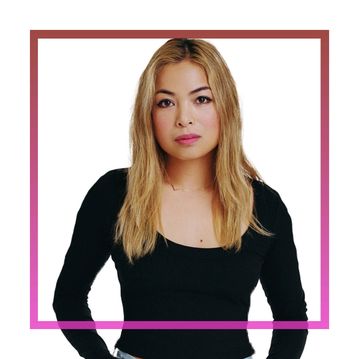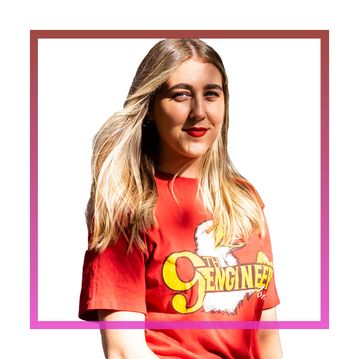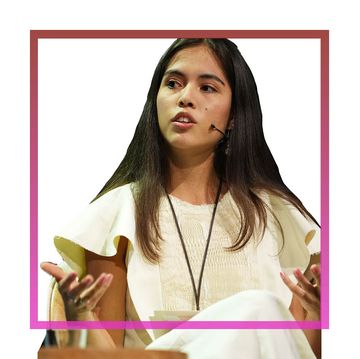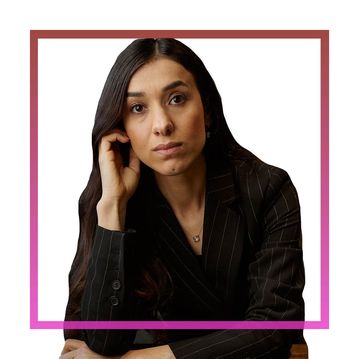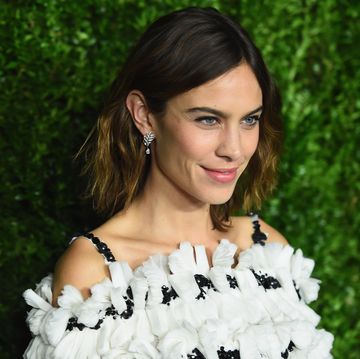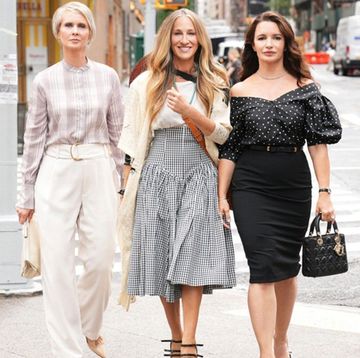Meaningful transformation looks different to me than how it looks to other people. When a new law is passed or when a court case is won, a lot of people see that as a win. And I think that there is an impact made then, but there are lots of laws introduced every day that people simply don’t follow, and a lot of court cases really only impact the material lives of the people directly involved in that case.
I don’t draw momentum from events like Harvey Weinstein going to jail. These mainstream media cases are not what the movement is about, and it’s not what the movement is built on. Imagine if we looked at those moments as a meaningful shift. What does it mean, then, when Bill Cosby comes home? When we get caught up in the big names and the guilt or innocence of celebrities who will go on with their lives one way or another, when we tie our healing and our progress to them. It’s not sustainable, and our movements become less and less so.
I draw motivation from the people who are saying, ‘This movement has changed my life. I am able to go on. I feel free. I can look in the mirror, I can face my accuser, I can face the world, I can face myself.’ Those are the places where I draw strength from – that’s why I have the ability to go on.
One of the things we are trying to emphasise, particularly in the #MeToo movement, is that real transformation is the change that happens in the material lives of the people who are affected by the issues we are campaigning against. Before #MeToo went viral, we could not have a conversation about sexual violence in the mainstream media without it devolving into salacious, headline-grabbing news. Although we still witness that every day, we’re now also seeing pushback back against it: there’s an awareness and awakening from every-day people, mainly survivors who are resisting those kinds of conversations.
And that is because activism has made a difference in the world. When you have millions of women, men, non-binary folks, queer folks and trans folks, indigenous folks, poor folks, people who have been pushed to the margins, who finally feel they have a place and a voice and capacity – that, to me, is an impactful shift.
The conversations I have with survivors are always evolving. Initially, people were just looking for community, and outlets. And as time has moved on, people have realised that first you find that community, then you find safety, then you find strength. And once you find that strength, you realise it can be used to make change. And so, as time has moved on, the conversation has changed from, ‘Look at us! We’re this group coming out of the shadows,’ to, ‘Look at us! What are we going to do with all this power?’
For a long time, people have looked at the issue of sexual violence as sort of free-standing: it happens to individuals, and individuals have to do the work to get better. And I think people are finally beginning to understand that we have to reimagine safety, and that we are all collectively responsible: there’s no demographic that doesn’t deal with it at all. This is not a tug of war between men and women. This is a social-justice movement that all people need to be involved with; the same forms of oppression and the same issues that lead to gun violence, and other forms of violence, lead to sexual violence.
The younger generation is so much more savvy and honest in their approach. I’m going to be 50 next year; I should not be the face of this movement. I think part of what happens in campaigns is that you have older people who are so married to their singular vision, they don’t allow it to grow; they don’t allow young people to come in with fresh ideas and energy, and so the movements wither, and they don’t expand. If you still see me running my mouth about #MeToo in five years’ time without a young person with me or standing by me, then I should be criticised for it. There should be another person who has just as big a spotlight – that’s the only thing that’s going to keep this movement alive and moving forward.
I try my hardest to preserve my energy and not stress too much. But that’s also sort of a myth; it’s the nature of the work. This is the assignment I was given, and I try to believe that, if this was the task I was given, I was also given the capacity to complete it. I try to give myself a lot of space and grace when possible. And when not possible, I do what everybody else does: I push through and lean into the community of people around me.
And, when all else fails, there are always memes!
This article appears in ELLE's September 2022 issue, on sale on July 28.





